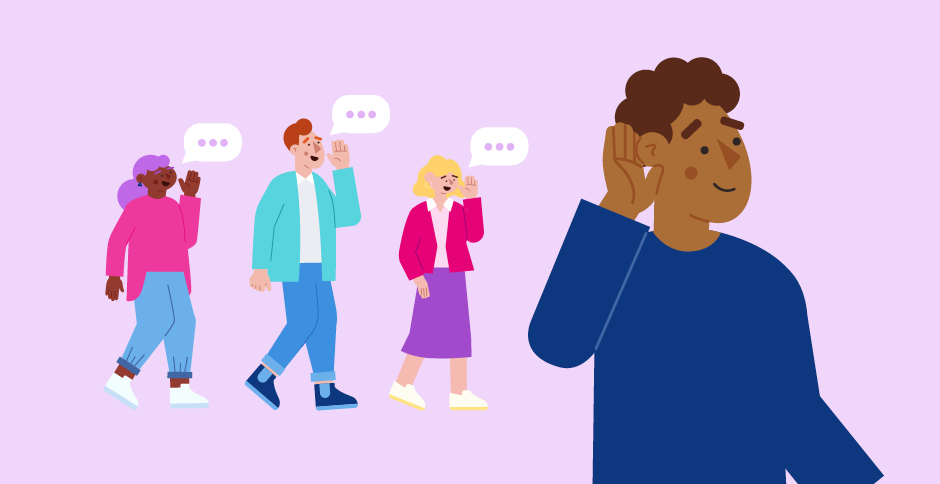SEEK received an overwhelming response to our Illegal Interview Questions article, which detailed what employers have no right to ask individuals in interviews.
We also received lots of follow-up questions from our community, so we decided to go back to Jaenine Badenhorst, Senior Solicitor with Rainey Collins for more information about what is acceptable and what’s not when it comes to navigating interview questions.
- Q: Can recruiters or potential employers request a proof of ID such as a licence or passport at the job application or interview stage?
A: Yes. A passport might be evidence of eligibility to work in New Zealand, and employers are required to ensure their employees are legally allowed to work.
A drivers licence might also be a requirement for certain positions (e.g. taxi driver, forklift operator, courier, bus driver), or if a work vehicle is used it might be necessary for insurance purposes.
It’s important to note that the request to provide a copy of your driver’s licence is entirely reasonable in some circumstances, however, if the employer uses your driver’s licence to calculate your age, and then subsequently uses your age to discriminate against you, that would be illegal.
Of course, you may not know if a potential employer has used your driver’s licence to work out your age and discriminate against you. However, you should always be mindful and protective of sharing this type of information. Don’t be afraid to question why proof of ID is required and how it will be used.
- Q: Is it legal for recruiters or employers to ask for information such as age, gender or ethnicity in application forms?
A: There is no real difference between an “application form question” and an “interview question”. Although these questions are probably quite common, there will be very few positions that can justifiably have a vacant position only for a candidate of a specific gender, age or sexual orientation.
Generally, these qualities are not indicative of whether a person is able to do a job. The obvious question that follows is: ”Why do employers ask the question then?” If the purpose of the question is to screen against or preferentially select certain applicants then the employer might be guilty of discrimination.
You cannot “refuse or omit to employ” a potential candidate because they are of a certain gender, sexual orientation, age, race or due to another illegal ground. But there are limited occasions when discrimination may be allowed if it relates to the requirements of the position.
Different treatment is sometimes legal (and necessary) to enable a particular group of people to achieve equality with others. Examples of this include gender quotas in the workplace or measures to reduce the discrimination or under-representation of specific ethnic or cultural groups.
In addition to knowing what your rights are at the job application stage, you also wanted to know if the following questions were legal:
- Q: How do you juggle work and looking after your children?
A: No. The mere fact that someone has children, no children, plan to have children, plan to have no children, or has other dependants (like an elderly parent, or disabled relative) should not be used to discriminate against a prospective employee.
It is illegal to discriminate against an employee due to the employee’s family status (such as being a single parent).
- Q: How much are you currently getting paid?
A: This question is not illegal per se, but the information could be used to discriminate against a potential candidate.
For instance, this might be a way for an employer to gauge whether the particular employee is within the employer’s budget, in which case the question is legitimate. The questions (and answer) could prevent both parties wasting time on an interview, if their respective expectations do not align.
However, if someone is unemployed, then it will be apparent from the answer, and a candidate may prefer not to disclose that, to avoid the risk of being discriminated against.
Instead, a candidate may answer with something like, “I’d prefer to focus on what I would be willing to work for, rather than what I am currently earning”.
- Q: Are you currently working?
A: It is illegal to discriminate against a candidate because they are employed, unemployed, or on a benefit. That being said, the question could be legitimate to determine when the employee would be able to start in the role (for instance the candidate might need to give notice to an existing employer).
- Q: Are you a smoker?
A: It is not illegal to discriminate against someone because they are a smoker. In addition, whether someone is a smoker could be relevant to some individuals’ ability to do a job (for instance living and working on an oil rig, or another high-risk area).
There have also been cases where employees have been dismissed (and the dismissal upheld as justified) where the smoking employee took smoke breaks in addition to their allowed rest and meal breaks.
Some employers actively discriminate against smokers, and certain District Health Boards have a policy not to hire smokers. People have suggested that discriminating against smokers could indirectly discriminate against certain ethnic groups who have higher incidents of smoking. Others have suggested that smoking is an addiction, and therefore a disability (and it is illegal to discriminate against someone with a disability.)
These theories have not been tested in court.
- Q: Have you had any past injuries/illnesses?
A: This question does not have a straightforward answer. The information from this question might be relevant to a candidate’s ability to do the job especially if physical activity is part of the role. Of course, an employer cannot discriminate against a candidate who has, as a result of a past injury or illness, a disability unless this will result in the candidate not being able to do the job.
Employers also have an obligation to ensure that their employees are able to keep themselves and others safe. If an injury or illness could pose a risk, the employer could legitimately ask about it (for instance staff who work in hospitals need to show they do not pose a risk to patients by confirming that they do not suffer from MRSA - an antibiotic-resistant bug).
- Q: Have you made any claims through ACC?
A: It is illegal for employers to discriminate based on whether a potential employee has made a claim through ACC.
- Q: Have you received diversion?
A: This is not a straightforward question. If you are specifically asked this question you have to disclose the diversion.
But it is worth noting that the prospective employer will only be able to check up on you by going through the police vetting process. The vetting process will disclose a diversion (and other interactions with the police) if it is relevant to the position applied for. Employers need to get your employee’s consent before they go through police vetting.
If you don’t provide consent it could lead to an employer assuming the worst, which might be worse than simply explaining the circumstances around the diversion. Some employees have a letter of explanation, which they provide to prospective employers with their application.
Things to keep in mind
These laws apply to all of New Zealand.
“Regardless of what is noted above, it can be difficult to prove that you have been discriminated against,” says Badenhorst. “How do you prove that you were not offered an interview or a job as a result of discrimination, as opposed to something else?”
Many of the questions above are not “illegal” per se, but they can be used for illegal purposes. “It can be very difficult to prove that you were an unsuccessful candidate as a result of your age (or some other form of discrimination), rather than due to another legitimate reason (i.e another candidate was more suitable),” says Badenhorst. “Further to this, many of the questions above can be justified by a prospective employer, and you might never know that you are being discriminated against. Where an employee suspects that they are being discriminated against, they can request an interviewer's notes made during an interview (under the Privacy Act). Evidence from such notes could be useful.”
If you are concerned that you have been asked an illegal or discriminatory question you have every right to ask what the information will be used for. You can always say something like, “I hope you don’t mind me asking, but I’d like to find out a little more about the reasons for this question and how this information may be used to determine my suitability for this position.” Most employers are not looking to discriminate against you or ask illegal questions, but it is worth knowing your rights and requesting interviewer’s notes made during an interview if you think you have been discriminated against.
The Human Rights Commission has further information.
Information provided in this article is general only and it does not constitute legal advice and should not be relied upon as such. SEEK provides no warranty as to its accuracy, reliability or completeness. Before taking any course of action related to this article you should make your own inquiries and seek independent advice (including the appropriate legal advice) on whether it is suitable for your circumstances.



